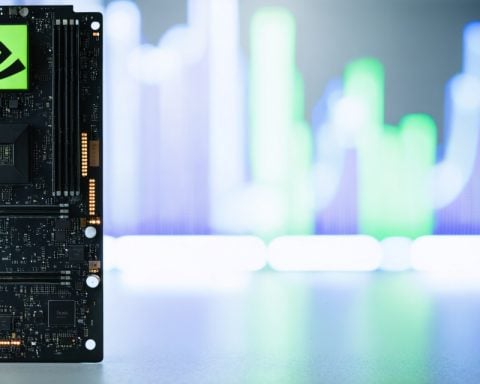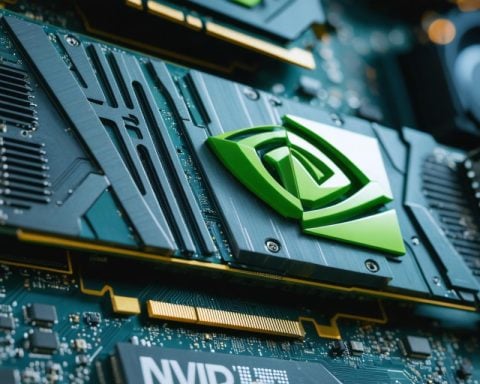- Mercedes-Benz is pioneering electric vehicle technology with a prototype EQS featuring a revolutionary solid-state battery.
- Developed in collaboration with Factorial Energy, the prototype delivers a remarkable 620-mile range on a single charge.
- The solid-state battery, using a solid electrolyte instead of liquid, enhances safety, energy capacity, and vehicle range.
- This technology significantly outperforms the current EQS 450+ and rivals competitors like the Lucid Air.
- Further enhancements could boost range by up to 40%, demonstrating the potential of solid-state batteries.
- Mercedes-Benz’s innovation leads the way toward fewer charging stops and sustainable electric travel.
Picture a road trip without anxious glances at your dashboard, calculating if you can make it to the next charging station. In a bold stride toward shaping the future of electric vehicles, Mercedes-Benz has unveiled a prototype EQS equipped with a revolutionary solid-state battery, transcending the limitations of traditional lithium-ion technologies.
In collaboration with the forward-thinking team at Factorial Energy, Mercedes-Benz has moved this cutting-edge technology beyond the confines of the laboratory. A fortuitous alliance of road-hardened engineers and innovative cell designers crafted this marvel, now undergoing rigorous real-world testing in a remarkable attempt to chart new territories.
Imagine gliding effortlessly across 620 miles on a single charge—this is the staggering range the new EQS promises, propelled by the solid-state battery’s remarkable energy density. These figures not only eclipse those of their own EQS 450+ model but also spark fresh competition with industry stalwarts like Lucid Air.
The secret lies in Factorial Energy’s advanced battery design, championing a solid electrolyte over the customary liquid. This swap increases safety, energy capacity, and perhaps most excitingly, range—while keeping the vehicle’s weight to a nimble minimum. Further refinements, envisioned in future iterations, hint at a tantalizing prospect: up to a 40% range surge. The journey is powered by a lithium-metal anode, deftly managing energetic power shifts through the wizardry of pneumatic actuators.
This step marks an epoch-defining moment. As solid-state technology edges into practicality, Mercedes-Benz sets a new benchmark, signaling an era of electric travel where longer journeys require fewer stops, and innovation accelerates the path toward sustainable transport.
Revolutionary Breakthrough: Mercedes-Benz’s Solid-State Battery EQS Enters the EV Arena
How-To Steps & Life Hacks
– Maximize Your EV Range: To make the most of the EQS’s impressive range, ensure that your driving habits are optimized for energy efficiency. Utilize regenerative braking, maintain a steady speed, and use eco-friendly driving modes.
– Stay Informed on Charging Options: Familiarize yourself with solid-state battery charging infrastructure updates. As technology evolves, expect more chargers offering faster and more efficient service.
– Regular Maintenance: Regularly check your vehicle’s battery health using onboard diagnostics—integral for maintaining optimal performance and longevity.
Real-World Use Cases
Solid-state technology is poised to revolutionize not just personal vehicles but also logistics and public transport.
– Long-Haul Trucks: The increased range dramatically reduces downtime associated with charging, boosting productivity.
– Public Transport: Buses equipped with solid-state batteries can operate longer without recharging, making them more efficient for cities.
– Remote Areas: Vehicles with solid-state batteries can service rural or underserved areas where charging infrastructure is sparse.
Market Forecasts & Industry Trends
– Growth Trajectory: The solid-state battery market is forecasted to grow significantly, with market valuation expected to reach billions by 2030 (Source: Market Research Futures).
– Adoption by EV Manufacturers: Major players, including Tesla and Toyota, are investing heavily in solid-state research, indicative of a broader industry shift towards this technology.
Reviews & Comparisons
– Lucid Air versus EQS: While Lucid Air boasts impressive tech, Mercedes-Benz’s solid-state battery promises better efficiency and safety, potentially giving it an edge in future comparisons.
– Current Lithium-Ion: Compared to current lithium-ion batteries, solid-state batteries offer higher energy density and improved safety due to their non-flammable solid electrolytes.
Controversies & Limitations
– Manufacturing Challenges: The complexity and high cost of solid-state battery production remain significant obstacles.
– Scalability Issues: Scaling production efficiently to meet demand is still a significant challenge.
Features, Specs & Pricing
– Energy Density: Solid-state batteries in the EQS offer higher energy capacity, potentially up to 500 Wh/kg, significantly more than traditional batteries.
– Reduced Weight: By eliminating the need for heavy liquid electrolytes, vehicles can potentially be lighter.
Security & Sustainability
– Safety Improvement: Solid-state batteries are less prone to overheating and fires compared to their liquid counterparts.
– Environmental Impact: Reduced dependency on cobalt and increased efficiency align with environmental sustainability goals.
Insights & Predictions
– Mass Adoption Timeline: Experts predict a broader market adoption between 2025 and 2030 as the technology matures.
– Secondary Markets: As production increases, the technology could extend to smaller electronics and wearable tech, revolutionizing battery life there as well.
Tutorials & Compatibility
– Integration with Existing Systems: While primarily for new models, retrofitting older vehicles with solid-state tech in the future may become feasible.
– Software Optimization: Future EQS models may include software updates optimizing battery longevity and performance.
Pros & Cons Overview
Pros:
– High energy capacity and extended range
– Improved safety and weight reduction
– Potential for increased lifecycle
Cons:
– High initial production costs
– Technical challenges in scalability
– Limited current infrastructure for fast charging
Actionable Recommendations & Quick Tips
1. Stay Updated: Regularly check automaker announcements for updates on solid-state integration into more models.
2. Battery Care: Follow manufacturer guidelines for maximum battery efficiency and longevity.
3. Consider Future-Proofing: When purchasing an EV, consider models with solid-state technology for its longer lifespan and potential resale value.
For more information on Mercedes-Benz’s innovations, visit Mercedes-Benz.
By incorporating cutting-edge technology and focusing on sustainability, Mercedes-Benz’s solid-state battery EQS sets a new standard in the electric vehicle market, promising longer journeys with fewer stops and heightened safety.













